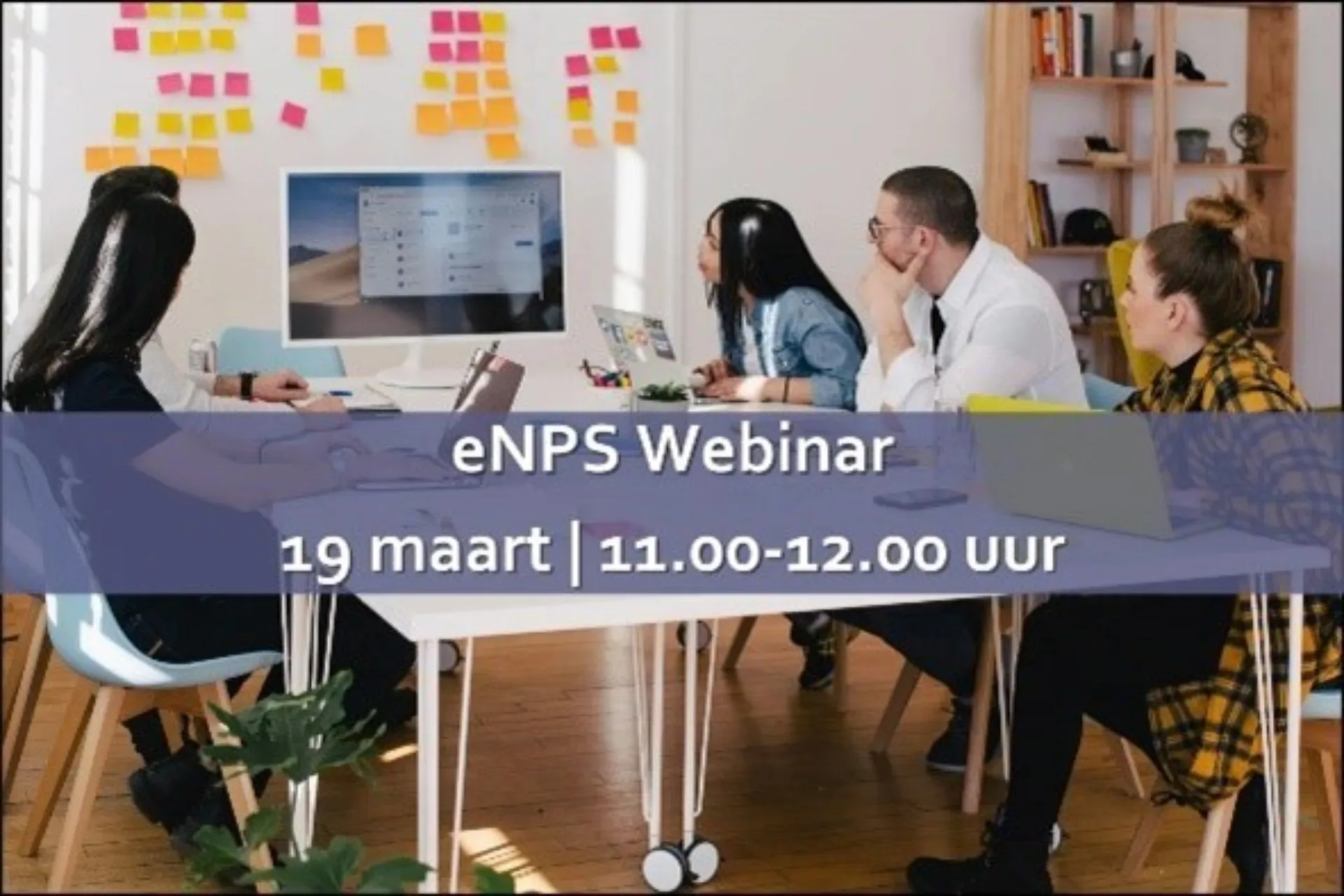The importance of the Employer Net Promoter Score (eNPS) in 2024
When your employees are at a party, how enthusiastic will they be about your organization? Are your employees so satisfied with you as an employer that they would recommend the organization to others as a great place to work? That is the question that the eNPS examines.

What is the eNPS?
The employer Net Promoter Score (eNPS) is used to measure the extent to which employees recommend an organization, making it a valuable metric for assessing the employee experience. The main advantage of using the eNPS over other metrics is its simplicity in calculation and ease of understanding. The eNPS is calculated by asking just one question: "How likely is it that you would recommend your organization as an employer?" Participants then respond to this question on a scale from zero to ten. Based on their answers, employees are categorized as promoters, passives, or detractors.
Promoters (EUeNPS: 8-10): Employees who are highly likely to recommend the organization. These individuals enthusiastically share positive experiences about their employer at social events, actively contributing to the organization's growth
Passives (EUeNPS: 6-7): Employees who are satisfied with the organization but are passive and less likely to discuss it with others
Detractors (EUeNPS: 0-5): Employees who would not recommend the organization. These individuals express their dissatisfaction openly, potentially having a negative impact on the organization
The eNPS is ultimately calculated by subtracting the per cent of detractors from the per cent of promoters.
Why is insight into the eNPS important?
Highberg has conducted an annual representative benchmark study among the working Dutch population since 2014 to emphasize the importance of gaining insight into the employee experience. The results once again highlight the significance of a positive employee experience. For instance, the research indicates that the eNPS has a substantial impact on employees' retention intention; a remarkable 88 per cent of promoters express a desire to continue working with their current employer, whereas only 22 per cent of detractors and 53 per cent of passives share the same intention.
Furthermore, the results demonstrate that promoters generally experience less stress than detractors. Promoters are also more likely to find happiness in their work, possess a stronger sense of competence, and generally perform better than detractors. These variables, such as stress levels, happiness, perception of competence, and enthusiasm, demonstrably influence employee productivity and contribute to the long-term success of the organization. Nurturing a positive eNPS appears to be not only advantageous for individual employees but also has broader implications for the overall performance of the organization.
Next Steps
The goal is to have as many promoters and as few detractors as possible. How can organizations achieve this? More insights will be provided in a free 2024 employee experience webinar on March 19, 2024. During this webinar, the Dutch workforce's perceptions of their employers in 2024, the challenges and success factors influencing the eNPS, and more will be explored.
Please note that the spoken language for this webinar is Dutch.
Interested? Register for the free Highberg webinar on March 19 (11:00 AM-12:00 PM).

Related insights
